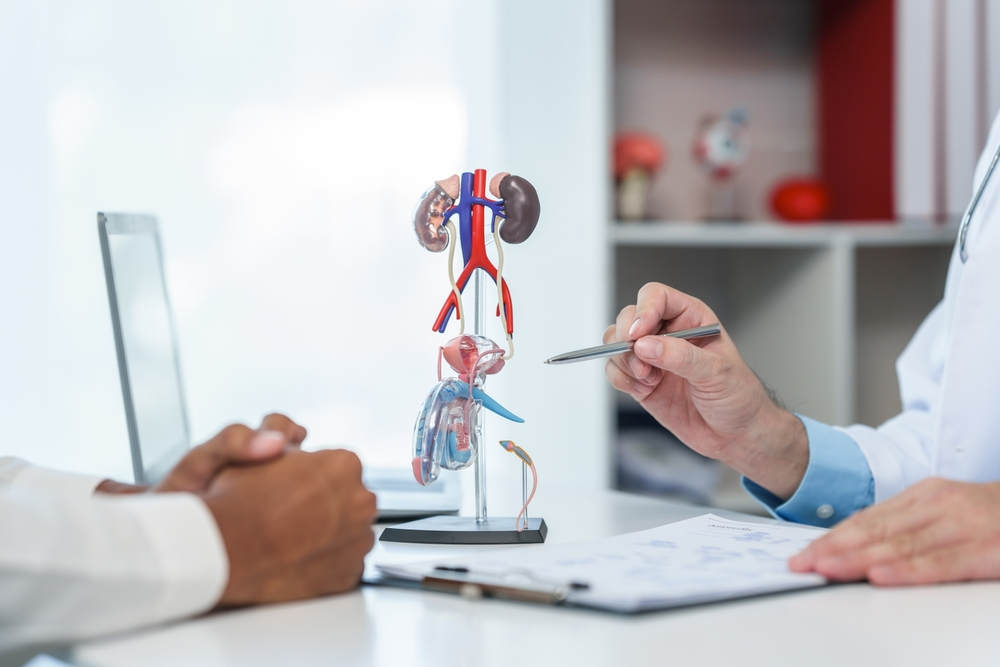Erectile dysfunction (ED) and prostate problems are two common health issues affecting men, especially as they age. While they may seem like separate concerns, emerging research reveals a complex and significant link between prostate diseases and erectile dysfunction. Understanding this connection is crucial for effective diagnosis, treatment, and improving quality of life. This article explores the relationship between prostate problems and ED, the underlying mechanisms, treatment impacts, and practical steps for men to maintain sexual health.
I. Understanding the Prostate and Its Role in Male Sexual Health
1. What is the Prostate?
The prostate is a small, walnut-sized gland located just below the bladder and in front of the rectum. Its primary function is to produce seminal fluid, which nourishes and transports sperm during ejaculation. The prostate surrounds the urethra, the tube that carries urine and semen out of the body, making its health critical for both urinary and sexual functions.

2. Common Prostate Problems
- Benign Prostatic Hyperplasia (BPH): A non-cancerous enlargement of the prostate common in men over 60, causing urinary symptoms such as frequent urination, weak urine flow, and incomplete bladder emptying.
- Prostatitis: Inflammation of the prostate, sometimes chronic, which can cause pain and urinary symptoms.
- Prostate Cancer (PCa): The second most common cancer in men worldwide, often developing slowly but can become life-threatening if untreated.
II. The Link Between Prostate Problems and Erectile Dysfunction
1. Prevalence and Association
Recent comprehensive studies, including data from the National Health and Nutrition Examination Survey (NHANES), confirm a significant association between prostate diseases and ED. Specifically:
- BPH and ED: Men aged 60-80 with BPH have nearly double the risk of experiencing ED compared to those without BPH.
- Prostate Cancer and ED: Men diagnosed with prostate cancer show a notably increased risk of ED across age groups (40-60 and 60-80 years).
- Prostatitis: Current evidence does not show a direct correlation between prostatitis and ED.
2. Why Does This Link Exist?
Several physiological and psychological factors explain this connection:
- Anatomical and Nerve Damage: The prostate is closely linked to nerves and blood vessels essential for erections. Treatments like surgery (e.g., transurethral resection of the prostate - TURP) or radiation can damage these structures, leading to ED. Postoperative ED rates can be as high as 40% in some cases.
- Hormonal Imbalances: Testosterone plays a pivotal role in both prostate function and erectile physiology. Treatments for prostate cancer, especially androgen deprivation therapy, can drastically lower testosterone levels, impairing erectile function.
- Vascular and Inflammatory Changes: Prostate diseases can cause inflammation and vascular changes that affect penile blood flow, crucial for erection.
- Psychological Impact: A diagnosis of prostate cancer or chronic prostate problems can cause anxiety, depression, and stress, which themselves are risk factors for ED.
III. Impact of Prostate Disease Treatments on Erectile Function
1. Surgical and Pharmacological Treatments
- Surgery: Procedures such as TURP or radical prostatectomy can inadvertently damage nerves controlling erections. Even minimally invasive procedures carry this risk.
- Medications: Drugs like 5-alpha reductase inhibitors, used to treat BPH, have been linked to reduced libido and sexual dysfunction.
- Radiation Therapy: Used in prostate cancer treatment, radiation can cause long-term damage to erectile tissues and nerves.
2. Hormone Therapy
Androgen deprivation therapy, common in prostate cancer management, lowers testosterone and often leads to severe ED.

IV. Emerging Solutions and Management Strategies
1. Exercise and Rehabilitation
New research highlights the role of regular exercise in improving sexual dysfunction in prostate cancer patients. A study from Edith Cowan University demonstrated that a combination of aerobic and resistance training, alongside psychosexual education, significantly improved erectile function and sexual satisfaction in men post-treatment.
2. Medical and Psychological Support
- Medications for ED: Phosphodiesterase type 5 inhibitors (e.g., sildenafil) can be effective but may have variable success depending on nerve damage extent.
- Psychosexual Therapy: Counseling and therapy can address the psychological aspects of ED related to prostate diseases.
- Hormone Monitoring: Regular assessment of testosterone and other hormones is critical in managing patients with prostate disease and ED.
V. Preventive Measures and Maintaining Prostate and Sexual Health
1. Regular Screening
Men, especially those over 50 or with a family history, should undergo regular prostate screening, including PSA blood tests and digital rectal exams, to detect prostate problems early.
2. Healthy Lifestyle
- Balanced diet rich in antioxidants (fruits, vegetables, nuts)
- Regular physical activity
- Avoidance of smoking and excessive alcohol consumption
- Weight management
3. Open Communication
Discussing symptoms and concerns with healthcare providers and partners helps in early detection and effective management of prostate-related sexual dysfunction.
4. Integrating Prostate Health and Sexual Wellness
The evidence clearly establishes that prostate problems, particularly BPH and prostate cancer, are closely linked to erectile dysfunction through a combination of anatomical, hormonal, vascular, and psychological mechanisms. Treatments for these prostate conditions can further exacerbate sexual dysfunction, making holistic management essential.
Men experiencing prostate problems should be proactive in discussing sexual health with their healthcare providers. Emerging therapies like exercise programs and psychosexual education offer promising avenues to improve outcomes.

VI. Men's Health Vietnam Center: Comprehensive Care for Prostate and Sexual Health
At Men's Health Vietnam Center, specialized services address the intertwined issues of prostate health and erectile dysfunction. Our multidisciplinary approach includes:
- Advanced prostate screening and diagnostics
- Personalized treatment plans for BPH, prostatitis, and prostate cancer
- Sexual health evaluation and management, including ED therapies
- Hormonal assessments and replacement therapies
- Rehabilitation programs incorporating exercise and psychological support
By linking prostate health with sexual function care, Men's Health Vietnam Center aims to restore quality of life and well-being for men facing these challenges.
- Address: 7B/31 Thanh Thai Street, Ward 14, District 10, Ho Chi Minh City, Vietnam
- Website: menhealth.vn
- Fanpage: facebook.com/trungtamsuckhoenamgioi
- Contact: (+84) 902 353 353
 0902 353 353
0902 353 353 Giờ làm việc: 08:00 - 20:00
Giờ làm việc: 08:00 - 20:00 7B/31 Thành Thái, Phường Diên Hồng, TP. HCM
7B/31 Thành Thái, Phường Diên Hồng, TP. HCM
